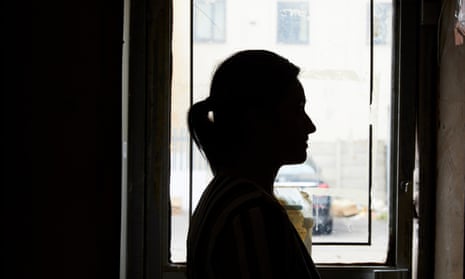Domestic abusers will no longer be able to cross-examine their former partners in family courts under a comprehensive government package of reforms to tackle the issue.
The landmark draft domestic abuse bill, published tomorrow after an 18-month delay, will prevent victims from being subjected to the “abhorrent practice” of being interrogated in court by their abusers, alongside other measures designed to raise awareness, support survivors and tackle perpetrators.
The development, which has been broadly welcomed by campaigners, comes as new analysis estimates that the social cost of domestic abuse in 2016-17 was £66bn, more than the amount caused by alcohol and drug misuse, cigarettes and obesity combined.
Measures in the draft bill include the first statutory government definition of domestic abuse, the appointment of a commissioner dedicated to tackling the issue and new protection orders to force perpetrators to attend rehabilitation programmes where substance abuse is a factor, or behaviour change programmes.
Prime minister Theresa May said: “We know, from the harrowing experiences of victims and their families, that there is still more to do to stamp out this life-shattering crime, and the domestic abuse bill will lead the way in bringing about the changes we need to achieve this.
“It represents a step-change in our approach, and I am grateful to the charities, victims, campaign groups and frontline agencies who have worked alongside us to ensure we get this right.”
Sarah Green, co-director of the End Violence Against Women Coalition, said: “The ambition and determination in the government’s announcement of the new bill is very welcome, given the devastation this abuse causes.
“However, if law, policy and spending really are to be radically changed in this area, it is absolutely critical that there is clear recognition that domestic violence very disproportionately affects women. This is not to say that men are not also sometimes victimised, but women’s inequality is part of what drives some men’s sense that they are entitled to bully and control in their relationships.”
Green also urged future work to examine the complex links between domestic abuse and “other forms of abuse including sexual violence, stalking and harassment, forced marriage, trafficking and prostitution”.
Tomorrow’s announcement comes after the government launched a consultation into domestic abuse last year that drew responses from more than 3,200 people. It is estimated that about two million adults experience domestic abuse each year.
The bill will be published alongside government research that calculated the social and economic costs of domestic abuse as totalling more than £34,000 per individual victim, or £66bn per year. The amount was calculated by looking at the costs of protective and preventative measures, the consequences and the response by police and the wider justice system.
The vast majority of this cost (£47bn) was a result of the physical and emotional harm of domestic abuse. It included other factors such as the cost to health services (£2.3bn), police (£1.3bn) and victim services (£724m).
The government originally intended to prohibit alleged domestic abusers cross-examining their victims in the family court through its Prisons and Courts Bill in 2017, but that bill was held up in the wake of that year’s snap general election, leaving victims and campaigners frustrated that the practice was able to continue.
